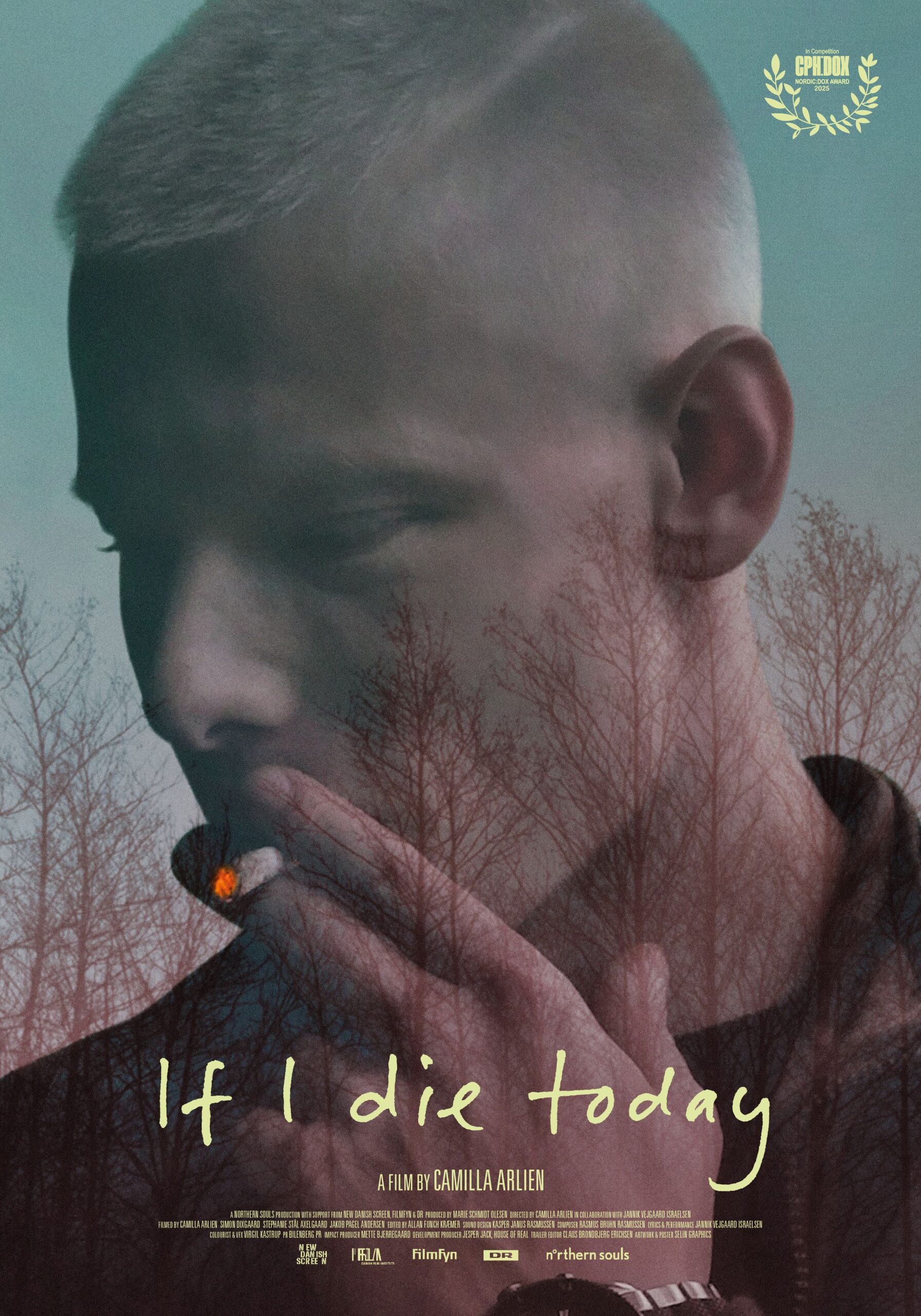


Camilla Arlien: If I Die Today

I was invited to the premiere by Marie (Schmidt-Olesen), who with her company Northern Soul produced first time long documentary of Camilla Arlien, who has graduated from the film school in Copenhagen. I could not attend and later on in the CPH:DOX festival, I watched foreign films and hosted friends, who came for this amazing festival. Leaving Danish films for later.
Today I watched “If I Die Today” and was in contact with good friend Marie to ask her if I should write my enthusiastic words in Danish or in English. She said English as she is now working on getting the film to festivals. In Denmark the film had successful screenings during the festival, great reviews and good publicity.
But will it work abroad? I think so. It is a very well made film that follows Jannik for a period of seven years.
The director explains, ““I first met Jannik in a prison cell on Funen, without having any idea that this would be the beginning of a seven-year film project.I was attending film school and had heard about Jannik from a friend. He was in prison for attempted murder, and he made music—that was all I knew. What I encountered was a person so full of life and hope that he was about to burst. Jannik had gathered all his song lyrics, prepared to show me. He immediately began to sing, and his songs moved me so deeply that I couldn’t let go.“
You sense immediately how close Camilla Arlien got to Jannik, who is used to the camera, so their interaction is much more a conversation than an interview. The film is a Film, a documentary and not just another tv-report. There is a narrative flow, as a viewer you suffer with Jannik,
the director again, “Jannik described his time in prison as both the best and the worst. He had gained a structure in his life that he had been missing, but he had also accumulated even more trauma and wounds, both physical and psychological. I picked Jannik up, when he was released—without any plan in place for him. He was 22 years old, had no money, and nowhere to live...”
It goes bad for Jannik, who is fighting with his inner demons, who gets to a huge abuse of hash, living with his mother for some time, with his half sister for some time, with girl friends, with friends he had met in prison.
Camilla Arlien: “ He was not born this way, I am convinced of that. He was hurt and let down so many times throughout his life. And there is no doubt that when he was released from prison, things got worse. It was as if he could never fully reenter society. Every time he tried, he faced closed doors, and in the end, it broke him...”
The film is full of well thought and performed scenes and sequences, some of them come back again and again like the one in the quiet clearing in the small forest, where Jannik came to write his music, and where his life ended. And the empty flats and his touching efforts to arrange a cosy environment, he wanted an organised “normal” life, and he has it in some periods. He would have been a great father, the first girl friend said; as a viewer, getting to know him so well thanks to the director, I can only agree. But the child was lost.
Was he a good songwriter? From my humble point of view, absolutely, his texts are personal, he was a good rapper, he got the chance to perform and did well together with the Prison Choir. From that point of view also a loss, his life ended at 27, like the lives of Jim Morrison and Janis Joplin.
One more quote from the director – could the mention of the Danish system and its inability be the same in other countries?
Camilla Arlien: “I was part of Jannik’s life for seven years. I will always carry a grief with me, and I will always carry these questions: Could I have done something differently? And where, when, and who could have changed Jannik’s path?Jannik’s story is not just his own. When you are released from a Danish prison, there is no plan. You are released with a massive debt due to legal costs, overwhelming interest rates, and a criminal record that limits your future opportunities.
About half of former offenders receive a new conviction within two years of their release.
For the good of all, we must get better at resocialization—but even more importantly, we must get better at prevention. We must take care of those who, from the very beginning, were not dealt the best hand in life. And we must be able to forgive and offer a second chance when someone has made a mistake and served their sentence.
I hope Jannik’s story can help make that happen.”